Under open borders, where would people go? Yes, population will heavily flow from the Third World to the First. But what about migration within the First World? Will almost all First Worlders stay in their country of birth? Or will they try their luck elsewhere in the First World? Furthermore, when people move to the First World, where exactly will they go? How many will choose the U.S. versus the E.U. versus Canada or the U.K. or Australia or Japan?
All of these questions inspired a recent series of polls that I did on Twitter. Yes, I know the obvious caveats, starting with the weirdness of my followers. I’ve even done a Twitter poll on that, showing considerably less selection bias than I expected:
In any case, some information is better than none, and I’m curious. I started the series of surveys with:
In other words, about one-quarter of people in the First World - and almost three-quarters elsewhere - want to move. For the First World, at least, that’s quite a bit higher than I expected. Which made we wonder: Where do all these people want to go? A large majority of U.S. respondents would stay put:
In contrast, over half of E.U. citizens say they would leave, even though they already have 27 rich countries to choose from! What’s the extra choice they’re currently missing the most? The U.S., by a landslide.
What about other First Worlders? The U.S. isn’t just their top alternative; it’s their top choice:
Third Worlders, finally, don’t merely want to get to the First World. Most respondents prefer the U.S. to their country of citizenship by almost 3:1:
In the comments, someone snarkily asked, “Is the U.S. a First World country?” In reality, the U.S. is so First World that other First Worlders want in. Under open borders, it wouldn’t just be a magnet for the Third World; it would be a magnet for the First World as well. What Texas is for America, America is for Earth.
Is the share of would-be movers improbably high? My respondents are heavily English-speaking, well-educated, high-IQ, and youngish. All of these predict desire to migrate, so the answer is almost surely yes - even taking diaspora dynamics into account. Notice, however, that responses reveal low absolute interest in the other First World English-speaking countries. Even for Anglophones, the U.S. is clearly the country of choice.
What is so attractive about the U.S.? Given all the negative international publicity that the U.S. gets for ugly politics, high crime, and sheer crackpottery, the most compelling answer by far is our standard of living. People in the U.S. don’t just have much higher official incomes that almost every other First World country. When you spend money outside of tourist zones, almost anyone can see that official statistics greatly understate the gap. The U.S. is the land of living large.
When Americans experience the inconvenience of Europe, it’s tempting to dismiss the relevance. “We like things our way; they like things their way.” What’s striking to me, however, is that as soon as you reach recently-developed parts of Europe, they look very American. In historic downtowns, Europeans shop with pushcarts and bicycles in tiny bodegas. So quaint! In the new suburbs, however, Euros shop with cars in mega-marts. They could have reproduced the cramped feel of the central cities if they wanted to, but European business realized that even Europeans dream the American dream.
People often ask me, “Can open borders work if only one country does it?” If the country is the U.S., I have little doubt. Open borders would turn the U.S. into a supersized version of itself. We’d build like Texans, with CostCos galore. And I have little doubt that we’d attract enough Europeans to finally give the U.S. dirt-cheap, top-notch croissants and cannolis, too. Under open borders, the U.S. would be the world’s party central. What a place to live, if only in imagination.



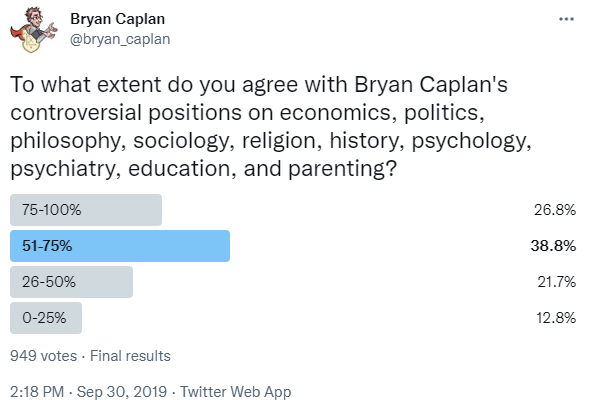
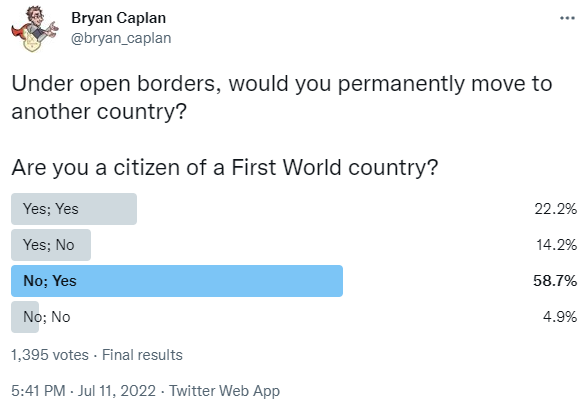
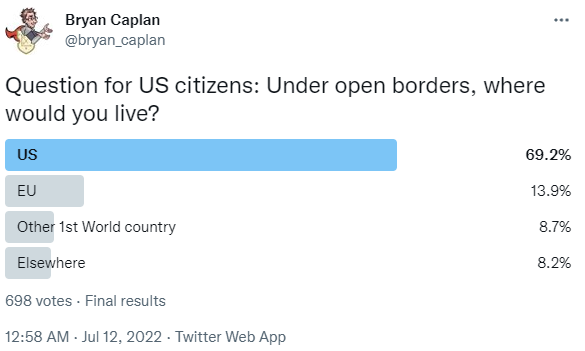
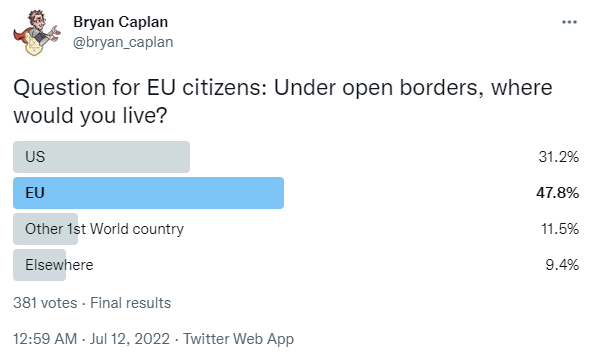
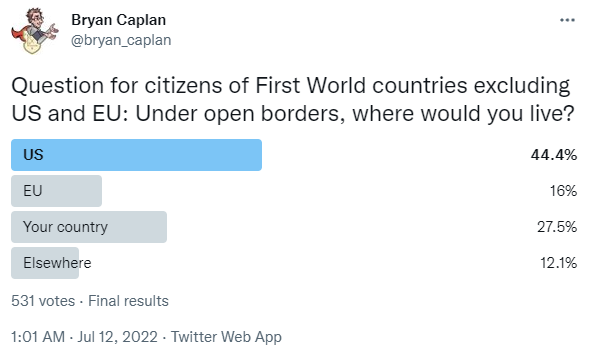
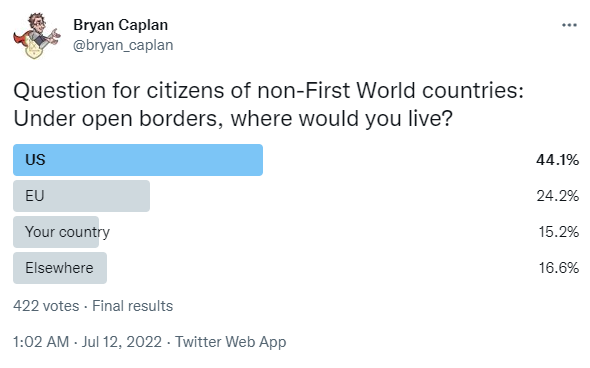
I think you might be missing a few points here that I believe are important:
the US is the largest country with English as the first and official language. And most first worlders speak English well enough to work in English. Sure, everyone in Scandinavia speaks English, but to really integrate you still need to speak the local language.
The snarky comment you mentioned about the US really being first world: I'm in my 3rd year of a temporary move to NYC and am constantly shocked by how terrible the infrastructure is in this country. In fact, it's so bad, that I am reminded of my trips into much less developed countries.
And thirdly, you speak about recently developed suburbs of Europe reproducing the older suburbs of the US. I'm reading your comment as inferring what is as a direct line to what people want. But just because that's how it turned out it doesn't that's what people actually want. It might just be what ended up happening as a local maximum. The US suburbs are financially held afloat by the wealth generated in the - as you say - "crammed" urban centers and aren't sustainable: neither economically nor environmentally.
Additionally I would like to ask what you mean by "When Americans experience the inconvenience of Europe" ?
I've never lived in a less convenient place than the US. Every government system I interact with seems to be actively hostile and in the best case needlessly cumbersome (and I'm from Germany: not a place known for little bureaucracy!). On top of that the aforementioned infrastructure is so bad that everyday things like public transit, quality of built of basically everything from furniture to buildings, up to long distance travel is so cumbersome that I do wonder why I'm here.
Lastly you mention Texas: Low taxes and cheap living sure does attract a lot of people. But in a race to the bottom with low taxes nobody wins, unless you want to argue for privatizing everything, of course.
I've read a lot of your stuff and this is the first time you seem to be too infatuated with the US to think a bit deeper about what might be going on here and disagree pretty fundamentally with you.
Interesting!
I think Ilya Somin's idea was that in foot voting people behave more rational and get informed.
I also thought about countries to move. The US's GDP/capita is attractive. Switzerland, Ireland etc. can keep up. Other indices seem less in favour of the US (see e.g. Freedomhouse). E.g. Germany seems attractive for its apparent moral development (openness to immigrantion, less military adventures, certain liberalizations) and thus taxes seem to cause less harm there. The US seems to respect certain rights more (free speech/hearing, self-defense). I wonder what movers in the poll care about most and whether they are informed about conditions in less popular „fringe“ countries like e.g. Ireland, Denmark, Slovenia etc.